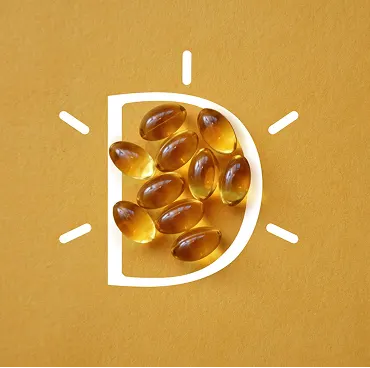Vitamin D plays a vital role in maintaining bone health, supporting immunity, and ensuring proper muscle function.
Yet, a significant number of people experience low levels without realizing it until symptoms become more pronounced.
Knowing the early signs of vitamin D deficiency helps you address the problem before it affects your overall well-being.
Vitamin D plays a vital role in maintaining bone health, supporting immunity, and ensuring proper muscle function.
Yet, a significant number of people experience low levels without realizing it until symptoms become more pronounced.
Knowing the early signs of vitamin D deficiency helps you address the problem before it affects your overall well-being.

Why Vitamin D Matters
This nutrient acts as both a vitamin and a hormone in your body. It helps absorb calcium and phosphorus, which are essential for strong bones and teeth.
It also supports your immune system and influences muscle and nerve function.
Without enough vitamin D, your body cannot perform these functions efficiently, leading to long-term health issues if ignored.
Early Signs of Vitamin D Deficiency
Being aware of these initial indicators can help you take action sooner:
1. Frequent fatigue and low energy
If you often feel tired despite getting enough rest, low vitamin D levels could be contributing.
2. Bone or back pain
Achy bones, especially in the lower back, are common in people who are deficient in vitamin D.
3. Weakened immunity
Catching colds or infections more frequently than usual can indicate insufficient vitamin D.
4. Muscle weakness
Difficulty climbing stairs, carrying groceries, or performing daily tasks may be a subtle sign.
5. Mood changes
Low levels are linked to mood swings and in some cases a higher risk of mild depression.
6. Slow wound healing
If cuts or bruises take longer to heal, a deficiency might be interfering with the body’s repair process.
7. Hair thinning or loss
While not always the sole cause, vitamin D plays a role in hair follicle health.
Who Is More at Risk?
Certain groups are more likely to develop low vitamin D levels:
- Individuals who spend little time outdoors
- People with darker skin tones (which naturally produce less vitamin D from sunlight)
- Those who live in areas with limited sunlight exposure
- Older adults whose skin becomes less efficient at synthesizing vitamin D
- Individuals who follow strict vegan diets or have conditions affecting fat absorption
How to Fix Vitamin D Deficiency Naturally
If you notice the early signs of vitamin D deficiency, there are practical steps you can take before considering supplements:
1. Get regular sunlight exposure
- Aim for 15-30 minutes of morning or late afternoon sunlight on your skin, at least 3-4 times a week.
- Avoid overexposure and protect your skin once you’ve had enough time outdoors.
2. Include vitamin D-rich foods
- Fatty fish like salmon, mackerel, and sardines
- Egg yolks
- Fortified dairy products or plant-based alternatives
- Mushrooms (some varieties produce vitamin D when exposed to sunlight)
3. Maintain a balanced diet
- A diet rich in healthy fats improves vitamin D absorption. Add nuts, seeds, and avocados to your meals.
4. Stay physically active
- Exercise not only strengthens bones but also improves metabolism and nutrient utilization.
5. Schedule routine health checks
- A simple blood test can confirm your vitamin D levels. If they are very low, your doctor may recommend short-term supplementation.
When to Seek Medical Help
Natural methods are effective for mild deficiencies, but if you have persistent pain, frequent infections, or extremely low test results, it’s important to consult a healthcare professional for targeted treatment.
Recognizing the early signs of vitamin D deficiency gives you a chance to correct it naturally before it causes serious health problems.
Sunlight, diet, and small lifestyle changes can often restore healthy levels without the need for heavy supplementation.
For expert medical consultation, visit Orthomed Clinic Bangalore.
Latest News & Blogs

Fatty Liver: Causes, Risks, and Simple Lifestyle Changes That Work
Fatty Liver: Causes, Risks, and Lifestyle Changes to Improve Liver Health

How to Lower Cholesterol Naturally: Foods, Habits, and Essential Tests
How to Lower Cholesterol Naturally with Diet, Lifestyle, and Tests

Pregnancy and Back Pain: Orthopedic Guidance Every New Mom Should Know
Pregnancy and Back Pain: Expert Orthopedic Tips for Relief



